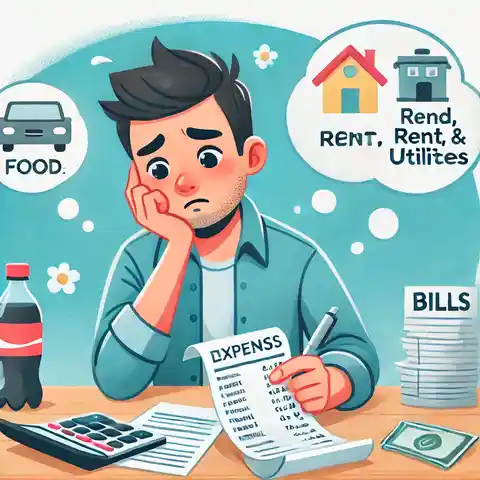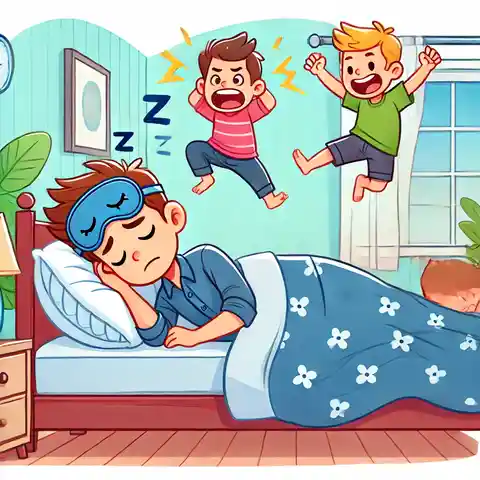Tips for managing parental stress: Parenting is a precious gift but can also cause the most pressure. Stress—With a lot on their plate, between handling everyone else, work, and the household, parents experience many challenges.
What causes parental stress?

There are so many reasons behind parent stress. Here are some common causes:
- Busy Schedules: most parents have do-it-all schedules. They have to cook, clean, care for the kids and buy things. It can be exhausting and stressful for parents trying to do it all.
- Lack of Sleep: parents of young children do not have enough sleep. Lack of sleep makes managing one’s job and stress difficult, which can become more exaggerated.
- Concerns About Kids: One of the other main reasons parents hire a private detective is their concerns for their children. These fears can pile up and ultimately become stressful.
- Money Problems: Having a family is costly. Parents who worry about bills, food, and other costs tend to stress out.
- Trouble with behavior: Sometimes, kids have problems behaving. It can be daunting, including temper tantrums, not listening, and all the other parenting challenges.
- Feeling Alone: Many parents feel isolated. They may believe no one can help or make them speak of loneliness, which may only further isolate them, causing more stress.
- Balancing Work and Home: Working parents may be stressed about balancing their jobs and time with their families. They might feel that there is not enough time to do it all.
Parents Understand why they feel so stressed and find better ways to cope. But the critical thing is that it does not matter. Ask for help when you need help and take breaks.
Why is self-care important for parents?

Parents need to take care of themselves and keep happy for their health.
Let us rise to a higher level as parents, knowing that when we parent ourselves and practice self-care, we can better care for the offspring who come through our womb.
But here are some more reasons why self-care matters.
- Improves Mood: Parents are happier when they rest enough, eat well, and do things that make them happy. A good mood will also lead to being more patient with the kids.
- Increases energy: Parents have more of it when they can take personal time-outs, relax, and recharge. If your target audience includes moms, daily essentials are the basic items that help them maintain energy to keep up with their children and perform all of those countless acts involved in parenthood.
- Reduces Stress: It can lower stress by providing self-care activities such as working out, meditating, and walking. If the parents are less stressed, they can think more clearly and may be able to react calmly towards their children.
- Leads by Example: By prioritizing self-care, parents teach children that they must take care of themselves, too. This gives children a healthy practice that they can continue throughout their lives.
- Prevent Burnout: We often hear how exhausting parenting is, and without regular self-care, parents can burn out. Those who take care of themselves along the way can avoid burnout and so enjoy their family when they get home.
Long story short, self-care helps parents feel great so that they can show up feeling their best for their kids. Self-care is not selfish; it’s necessary for a sane family.
What are some signs that we need help to manage stress?

Indications that you may need more support:
- Stressed 24/7: If you are stressed 24/7 or ever feel worried and tense all the time, talk to a professional. This is particularly true if such feelings persist for more than a few days.
- Sleeplessness: A professional can offer guidance whether you lie awake and anxious every night or wake up tired nearly every day. Sufficient sleep is very good for feeling better.
- Hobbies Losing Their Luster: If you no longer get as much enjoyment out of the things that brought happiness to your life, it could be due to stress disrupting your mood. A therapist or counselor can help you feel better.
- Feeling Hopeless or Sad: If you often feel sad, and it seems like things will never get better, talk with someone. If the feelings are unbearable, it could be a sign that you need some extra help.
- Difficulty with Day-to-Day Tasks: Stress can create reprieve from even the simplest tasks, like going to work, taking care of your children, or handling housekeeping Responsibilities. Let a professional effectuate how you handle stress.
- Taletidical Symptoms: Stress may lead to headaches, stomach aches, or other ailments. If you persistently experience any of these symptoms, it may be a good idea to seek help from your doctor or therapist to better understand and cope with them.
Mind you, it is perfectly fine to ask for assistance. A therapist can offer solutions to help you out of this challenging situation and back into a more balanced state. It’s a powerful and courageous move toward self-care.
When should we get professional help for stress?
Below are some simple steps you can follow to do that and keep your family happy and healthy.
- Take Care of Yourself
Taking care of yourself is important. Ensure you get enough rest, eat well, and maintain physical activity.
- Ask for Help
When you need help, ask for it. This is where you can get support from your partner, family members, or friends.
- Mindfulness And Relaxation Exercises
Mindfulness and relaxation to ease your nerves. Practice deep breathing meditation or taking YOGA.
- Set Realistic Expectations
Accept that you may not do everything perfectly. Plan goals that are manageable for you and your family. Priorities: Focus on the main thing and not sweat the small stuff.
- Establish a Routine
Having a schedule lets everyone know what is happening and can help cut back the chaos during the day, making things more predictable.
- Connect with Other Parents
It makes a difference to talk to other parents. There are parent groups you can join, playdates with which to get involved, or even Facebook chats.
- Make Time for Yourself
That is what doing the thing that makes you happy means. It can be enough for a few minutes each day. Do something for yourself — Read a book, listen to music, or walk on the terrace.
- Communicate with Your Partner
Speak freely to your partner about what you are going through. Open up and share your concerns to alleviate the stress from either end.
- Get Help (if you need it)
On the other hand, asking for professional help is okay if stress feels too much to handle. A therapist or counselor can support you and teach you management tools for managing stress.
- Practice Gratitude
Focusing on positive things can reduce stress. Every day, spend at least one moment thinking about something you love — your kids are an easy target most of the time!
How, then, do we stress less as parents?

To reduce stress as a parent, implement the following tips:
- All the Best: Always rest well, eat well, and take short breaks when necessary.
- Request Some Support: Feel free to seek help from friends and family. You are allowed to spread your work.
- Well, there is only one solution:. Routines can make you feel structured and less stressed.
- Deep Breaths: Try taking a few deep breaths, especially when stress is mounting. This can help your brain and body relax.
How can we manage our time better?
Here are some ways to do it:
- To-Do List: Create a daily to-do list. Prioritize your most important work first.
- Have a Schedule: A daily routine can help everyone get on the same page. Eat, bathe, and put yourself to bed at almost the same time of day.
- Do not mix up tasks, one task at a time. Master one craft rather than be okay at many.
- Rest: In the course of working during each day, allow yourself to have momentariness releases when you can rest & refresh.
What should we do if we feel overwhelmed?
This is what you can do :
- Put It Down: Walk away for a minute. Take a walk, listen to music, or do something that brings out your initial relaxation.
- Communicate: Talk to Any Friend, Family Member, or partner about your Feelings. It can help you feel better to talk about it.
- Ease up on the Day: Spend only on extremely important tasks while neglecting others. Yes, it is okay to say, “No, I do not have time for this.”
- Ask for help: If you feel really down, talk to a counselor or therapist. They can offer support and action plans to assist you in handling these processes.
How can we make time for ourselves?
Here’s how you can do it:
- Put it on the schedule: Schedule a daily appointment with yourself, even for 10 minutes. Schedule It As Though You Have A Meeting (And Put It On Your Calendar)
- Get up from bed sooner and have a few quiet moments before your day picks.
- Get Some Rest During Nap TimeIf your kids take a nap that is the perfect time for you too!
- Seek Assistance: Draft a friend, family member, or significant other to cover you for the kids and take a breather.
Is Physical Activity a Stress Reliever?
Believe it or not, exercise mitigates stress. Here’s why:
- Improves Mood: Exercise triggers the release of endorphins, feel-good neurotransmitters in your brain.
- Relieves Tension: Moving your body helps to release tension and loosen muscles.
- Makes for better sleep: Exercise can help you rest and reduce stress.
- A Break: Exercise is also a break from daily stresses and clears your mind of negativity.
How can we talk to my partner about stress?
Share your stress with your partner. Here’s how to start:
- Choose the Right Time: Arrange a time when you can talk peacefully without disturbances.
- Be honest about how you feel and why—being transparent about what is stressing you out matters.
- Listen to Each Other: When you understand each other, then both sides will obviously find solutions.
Now, it is time to plan how you can work as a team. Stress can be more manageable when we allow ourselves to work together.
How gratitude reduces stress
Being thankful and gracious can decrease stress by concentrating on the good in life. Here’s how it works:
- Change of Focus: When you think about things you are grateful for, your focus shifts from the concerns and opposing ideas.
- Increases Happiness: Gratitude will make you feel better and more comfortable. It makes you very grateful for what you have.
- Increases Resilience: Gratitude aids in greater resilience in coping with adversity by allowing you to focus on the positive aspects of life.
- Promotes Positive Attitude: It has also been said that repeatedly exercising gratitude can enhance one’s attitude toward the more optimistic side, eventually decreasing stress.
Parental Stress: How to Manage It (And Understand Why It’s Important) Taking care of yourself, reaching out to him, and practicing mindfulness and gratitude can all lead to less anxiety at home, which is the key to a healthier home.
Remember, you can ask for help, and it is okay to take the time YOU need. Take yourself of yourself, and do your thing best.


